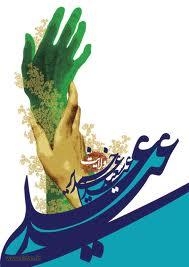
Adopted from the Book : "Shi'ism; Imamate and Wilayat" by : "Sayyid Muhammad Rizvi"
"Wilayat," derived from wila,' means power authority or a right of certain kind. In Shi'a theology, "wilayat" is the authority invested in the Prophet and the Ahlul Bayt as representatives of Almighty Allah on this earth.
According to the late Murtaza Mutahhari, wilayat has four dimensions:
The right of love and devotion (wila'-e muhabbat): This right places the Muslims under the obligation of loving the Ahlul Bayt.
The authority in spiritual guidance (wila-'e imamat): This reflects the power and authority of the Ahlul Bayt in guiding their followers in spiritual matters.
The authority in socio-political guidance (wila'-e zi 'amat): This dimension of wilayat reflects the right that the Ahlul Bayt have to lead the Muslims in social and poitical aspects of life.
The authority of the universal nature (wila-e tasarruf): This dimention reflects universal power over the entire universe that the Prophet and Ahlul Bayt have been vested with by the grace of Almighty Allah.1
Using this division of wilayat's dimentions, I would like to point out the areas of agreement and disagreement among the various Muslims groups.
____________
1. See, Murtaza Mutahari, wilayah: the station of the Master (Wala ha wa wilayat ha), tr. Yahya Cooper, Tehran: World Organization for Islamic services, 1982.













